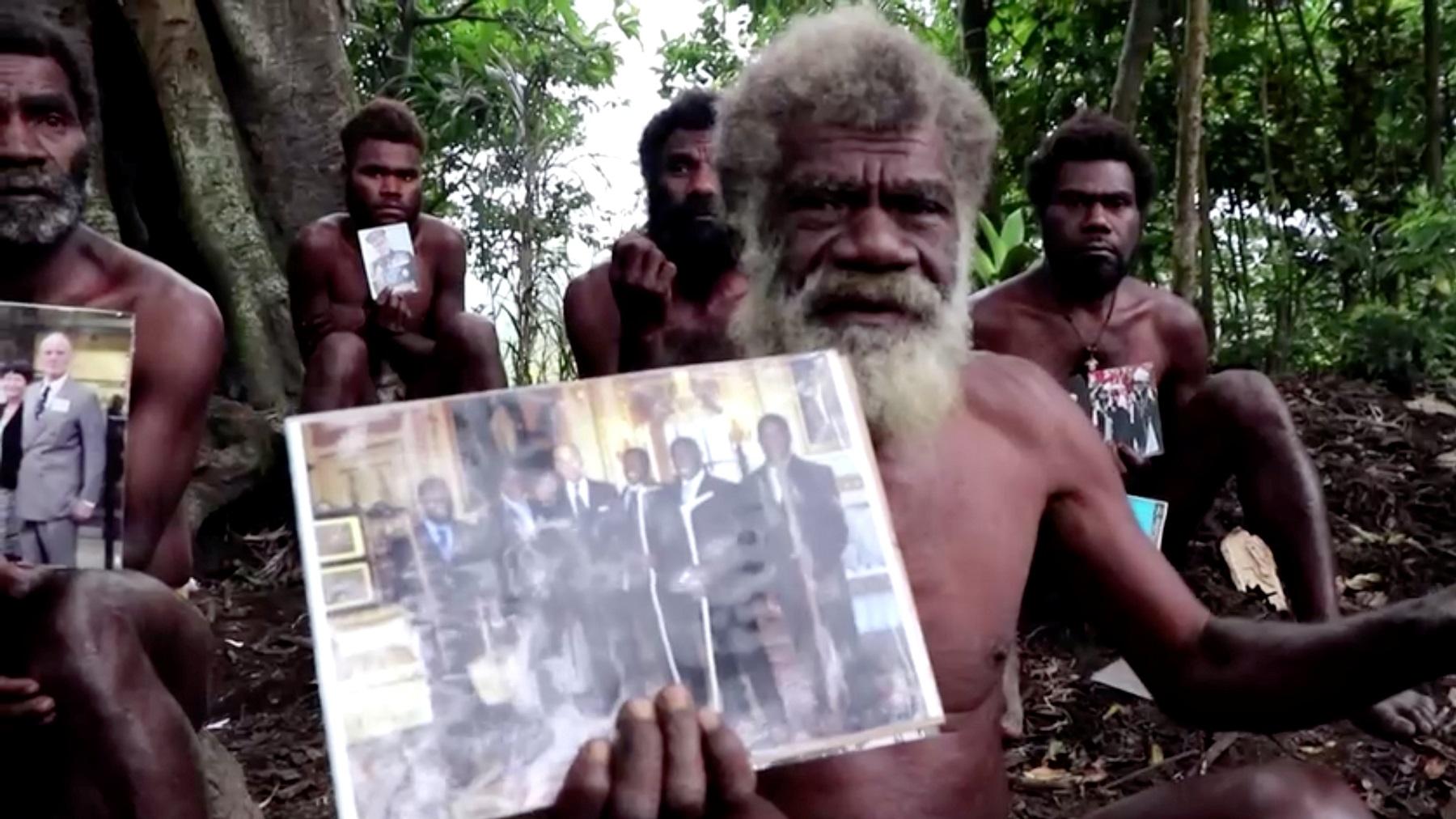Vanuatu’s Prince Philip worshippers say his spirit lives on

YAOHNANEN VILLAGE, TANNA, Vanuatu — The chiefs of remote Pacific villages that worship Prince Philip offered a message of comfort to Queen Elizabeth II Monday, saying his soul would live on.
But the worshippers of Yakel village on the Vanuatu island of Tanna said they did not yet know who would become their new spiritual leader.
For decades, inhabitants of two villages in the hinterland of the lush volcanic island of Tanna in Vanuatu—Yaohnanen and Yakel—have venerated Philip, who died at Windsor Castle last week at the age of 99.
Yakel village chief Albi said it was unclear how Philip's death would impact the religious movement, as his spirit was believed to be adrift and seeking a new home.
While many outsiders assumed Philip's eldest son Charles or grandsons William and Harry would succeed him in the villagers' devotions, Albi said nothing was certain.
"The spirit of Prince Philip has left his body, but it lives on—it is too soon to say where it will reside," he told AFP.
Other elders argued that Charles' succession was guaranteed in 2018, when he was given the chiefly title Mal Menaringmanu during a visit to Port Vila.
Beneath a British flag flying at half-mast, the chiefs met Monday at Yaohnanen to thrash out the issues his death has raised.
The chiefs said they were sending a confidential message to the royal family following Philip's passing.
The leaders spoke in turn during painstaking discussions on the future direction of their customary belief system, with a resolution likely to be days away.
Pale-skinned spirit
The Prince Philip Movement is believed to have started in the late 1970s following a state visit by the Duke of Edinburgh in 1974 to Vanuatu, then known as the New Hebrides.
British officials investigating the phenomenon concluded it stemmed from an age-old legend of a returning son who had pale skin.
Upon learning that Greek-born Philip was not originally from Britain, France or the United States, they may have decided that he must, therefore, be from Tanna.
Worshippers believed he had set off from Tanna to marry the most powerful woman in the world and would one day return bringing bounty.
Anthropologists say the movement is a way for villagers on the island to find a spiritual connection to the outside world.
Despite his reputation for politically incorrect gaffes, Philip was reportedly respectful towards the islanders' beliefs.
British journalist Matthew Baylis lived among the Philip worshippers for a short time and in his 2013 book said that the prince sent signed photographs to Tanna after receiving gifts from the villagers.
In other villages on Tanna, locals are part of the so-called John Frum Movement, a similar cult which stems from the appearance of a pale-skinned stranger in the 1930s.
Adherents to the movement, which encourages the return to traditional customs of dancing and kava-drinking, believe that a hero, "John Frum" will one day return, bringing with him the riches seen in the hands of American GIs during World War II—including radios and cars. — AFP




